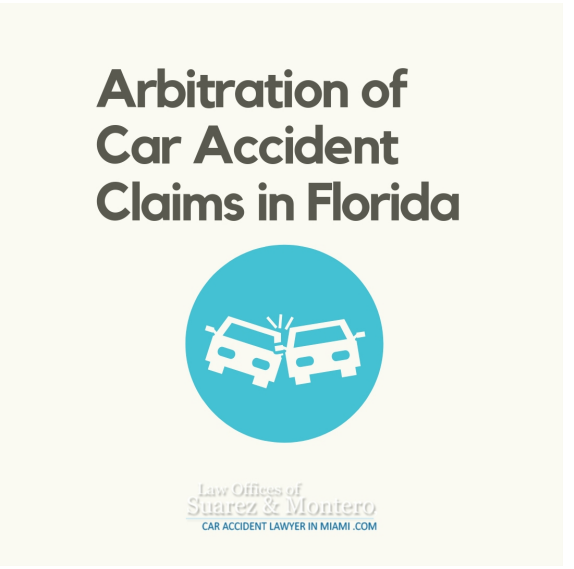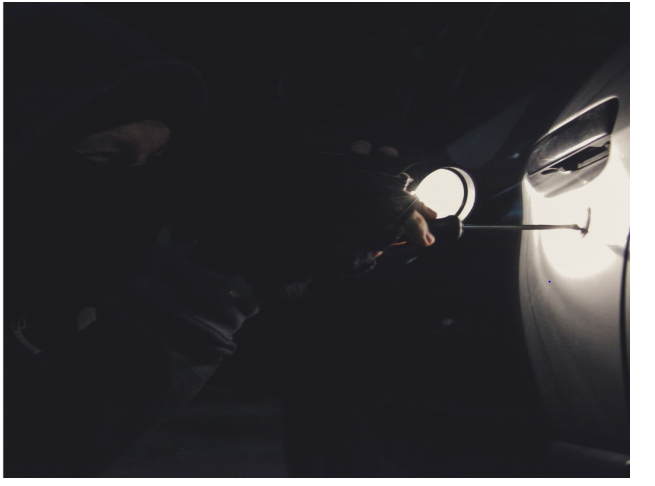
Arbitration of Car Accident Claims in Florida
Most personal injury cases are settled through negotiation or an alternative dispute resolution process, like arbitration, long before a trial would ever become necessary. One method of resolving legal disputes short of a full trial is nonbinding arbitration. Arbitration is different from car accident claim mediation, with the main variant being that a mediator only tries to facilitate a resolution between the parties. The mediator has no authority to rule for either side, while the arbitrator does have that power. In a car accident case, an arbitrator will decide a number of key questions. Do you recover money damages from the other driver? If so, how much do you recover? Arbitration usually saves the parties time and money, compared to taking a case to court. And much like a court judgment, all parties are bound by the arbitrator’s decision.
The most notable statute that governs nonbinding arbitration in Florida is Fla. Stat. § 44.103. Depending upon the dispute presented, nonbinding arbitration may be either an optional or mandatory procedure. However, nonbinding arbitration procedure has one common thread in all disputes when utilized—it requires extreme caution for the uninformed. This blog post will discuss how arbitration works in Florida in the context of personal injury claims. Nonbinding arbitration and voluntary binding arbitration are addressed separately in the Florida Rules of Civil Procedure. The rules of procedure cover a variety of topics including the court’s authority to refer a case for arbitration, the appointment and disqualification of arbitrators, the procedure for conducting the arbitration hearing, and the method of enforcing agreements reached in arbitration. Binding arbitration differs from nonbinding arbitration in the respect that binding arbitration is a true alternative to the court system and not merely a method of promoting disposition by settlement. There are other differences as well. If the parties elect to engage in voluntary binding arbitration, they have more flexibility to define the procedures that will govern the arbitration.
As explained in Rule 1.800, there are some cases in which arbitration is permitted, others in which it is required, and still others in which it is prohibited. Generally, the trial judge has discretion to order a civil action to arbitration on a finding that it could be of benefit to the litigants or the court. The trial judge does not have discretion to decline a request for referral if the parties have stipulated to arbitration. In that event the court must order the case to arbitration. However, there are some actions that cannot be arbitrated regardless of the agreement of the parties or the discretion of the court. Rule 1.800 provides that it is improper to refer any of the following kinds of cases to arbitration:
- bond estreatures
- habeas corpus and other extraordinary writs
- bond validations\civil or criminal contempt proceedings
- other matters excluded from arbitration by local administrative order.
How Long Does Arbitration Take?
The time limit for completion of arbitration is 30 days from the date of the first arbitration hearing. Rule 1.820(g) states that the time may be extended by an order of the court on the motion of the chief arbitrator or a party, but that the time may not be extended, in any event, for more than 60 days from the date of the first hearing. The arbitrator or arbitration panel must notify the parties of the decision in writing within 10 days of final adjournment of the arbitration hearing. If neither party has filed a timely motion for trial, the decision of the arbitrator or arbitration panel may be enforced in court. Rule 1.820(h) states that the presiding judge has authority to “enter such orders and judgments as may be required to carry out the terms of the decision as provided by section 44.103(5), Florida Statutes.” However, the court is not required to enforce the arbitrator’s decision, if it does not resolve all of the issues set out in the order referring the case for arbitration. In that event, the trial judge can simply refer the matter back to the arbitrator to decide all of the issues.
How Does Arbitration Work?
An arbitration is structured like a mini informal trial. After both sides make opening statements to the arbitrator on the facts and issues in the case, both parties can present their evidence. Additionally, the parties can provide testimony under oath to explain the specific circumstances that led to the accident and injuries. Both parties are allowed to cross-examine any witnesses called by the opposing side. The arbitrator may not decide the same day of the arbitration. case on the spot.
Can you Appeal the Results?
Generally, the arbitrator’s decision is final and may not be appealed. However, in nonbinding arbitration, any party may decline to accept a decision by filing a motion for trial de novo within 20 days of service of the decision. If a third-party claim is pending when a party files a motion for trial, any other party to the action then has an additional 10 days to file a motion for trial. Rule 1.830 outlines the procedures that apply to voluntary binding arbitration. As its name implies, voluntary binding arbitration is a form of arbitration in which the parties are obligated to accept the arbitrator’s decision. The parties could agree to voluntary binding arbitration after the dispute has arisen, but, more often, it comes about in connection with a contract in which the parties have agreed in advance that disputes will be arbitrated. As explained in Rule 1.830(c)(2), the decision may be appealed within 30 days on any ground specified in Fla. Stat. § 44.104(10), and if no appeal is filed within the time allowed, the decision is referred to the presiding judge who must then enter the appropriate order or judgment necessary to carry out the terms of the arbitrator’s decision.
Contact an Attorney Today
If you were injured due to someone else’s negligence, talk to a personal injury lawyer about your options for recovering for the injuries. The Miami law firm of Suarez & Montero Car Accident Attorneys has years of experience in personal injury cases and can advise you on the best way to hold the other party accountable. Our attorneys are ready to provide proven legal representation in pursuing your claim and stand ready to protect your rights. We are available 24/7 to give you a free, no risk case consultation.
We serve clients throughout Florida including those in the following areas:
Miami-Dade: Aventura, Coral Gables, Doral, Fontainebleau, Hialeah, Homestead, Kendall, Miami, Miami Beach, Miami Lakes, North Miami, Tamiami, and Westchester.
Broward: Fort Lauderdale, Hallandale Beach, Hollywood, Pembroke Pines, and Weston; and Palm Beach County including Boca Raton, Lake Worth, and West Palm Beach.





